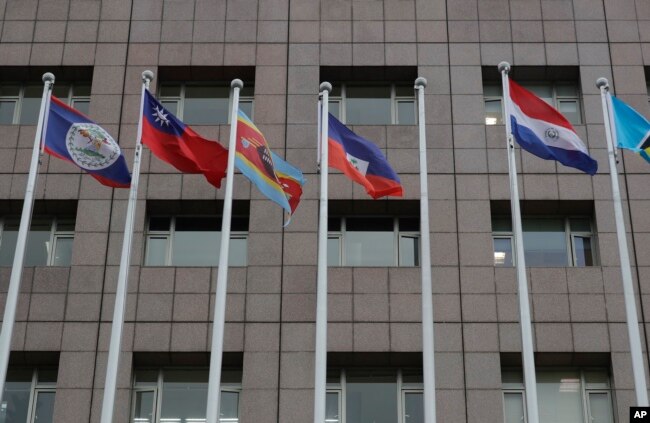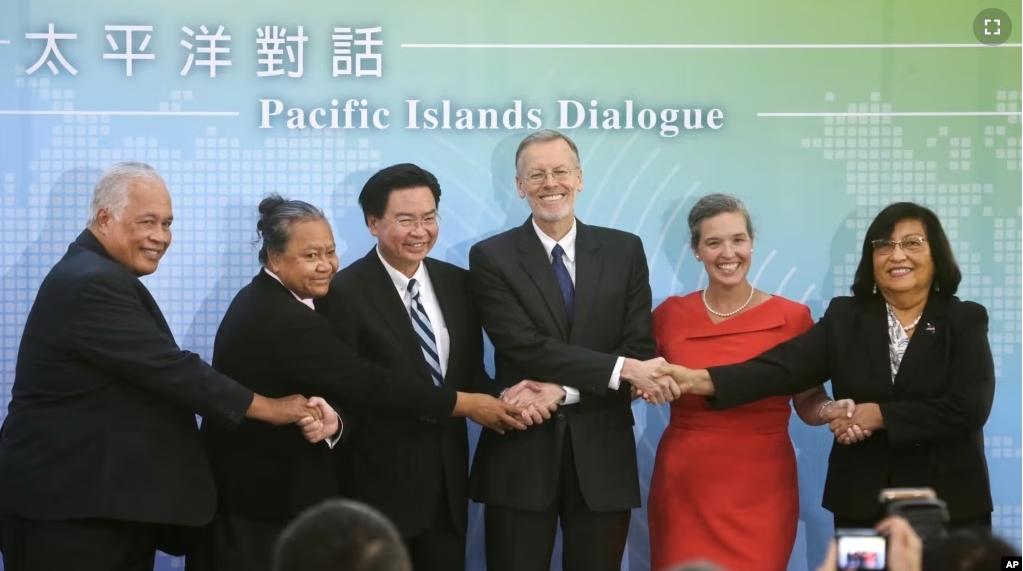The Pacific Island nation of Nauru says it is changing its diplomatic recognition from Taiwan to China. The move reduces the number of Taiwan’s diplomatic allies to 12 around the world.
Nauru’s government announced the change this week, confirming it would re-establish diplomatic ties with China.
China claims self-governing Taiwan as its territory. So countries must choose whether to establish diplomatic relations with China or Taiwan. China has been pushing nations in recent years to cut diplomatic ties with Taiwan and recognize China. Chinese officials often try to persuade nations with promises of development aid.
“This policy change is a significant first step in moving forward with Nauru’s development,” the government statement said.
China welcomed Nauru’s announcement.

Nauru said it would move to a one-China policy. The one-China policy recognizes that Taiwan is part of China and accepts Beijing as the seat of government for China. This differs from America’s one-China policy, which recognizes Beijing as the seat of China’s government, but does not take a position on which country rules Taiwan.
The policy change was seen as a setback to Taiwan after it was announced just two days after the island held democratic elections. The winner of those elections, President-elect Lai Ching-te, is set to take office in May. He has been described by China as a separatist.
China has said Taiwan must come under the control of mainland China at some point. Chinese forces have repeatedly held military exercises around the island in recent years to show the government’s will and military strength. Lai’s Democratic Progressive Party supports keeping Taiwan independent from China.
Taiwanese Deputy Foreign Minister Tien Chung-kwang accused China of purposefully timing the news to the recent election.
“China’s intention is to attack the democracy and freedom that the Taiwanese people are proud of,” Tien told a news briefing.
Two retired U.S. officials praised Taiwan’s democratic process in recent meetings with President Tsa Ing-wen and other leaders. The Biden administration asked the former officials to visit privately since the U.S. does not have official diplomatic ties with Taiwan.
Nauru’s announcement caught Jarden Kephas, the country’s ambassador in Taiwan, by surprise. He told the AP, “There’s nothing that I have to say. It was announced by my government and I was told to pack up and go.”
Taiwan now has official diplomatic ties with 11 countries and the Vatican, the seat of the Catholic Church. Seven of the nations are in Latin America and the Caribbean, three are in the Pacific Islands, and one is in Africa.
I’m Gregory Stachel.
Taijing Wu and Ken Moritsugu reported this story for The Associated Press. Gregory Stachel adapted it for VOA Learning English.
_______________________________________________
Words in This Story
significant – adj. very important
setback – n. a problem that makes something happen later or more slowly than it should
intention – n. the thing that you plan to do or achieve: an aim or purpose
pack – v. to put (something) into a bag or suitcase so that you can take it with you
